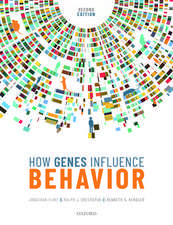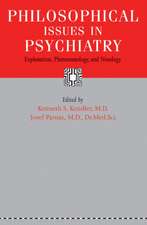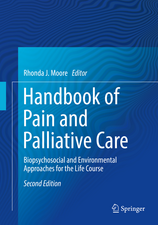Levels of Analysis in Psychopathology: Cross-Disciplinary Perspectives
Editat de Kenneth S. Kendler, Josef Parnas, Peter Zacharen Limba Engleză Hardback – apr 2020
| Toate formatele și edițiile | Preț | Express |
|---|---|---|
| Paperback (1) | 257.43 lei 43-57 zile | |
| Cambridge University Press – 3 aug 2022 | 257.43 lei 43-57 zile | |
| Hardback (1) | 1114.06 lei 22-36 zile | |
| Cambridge University Press – apr 2020 | 1114.06 lei 22-36 zile |
Preț: 1114.06 lei
Preț vechi: 1172.69 lei
-5% Nou
Puncte Express: 1671
Preț estimativ în valută:
213.17€ • 223.17$ • 176.39£
213.17€ • 223.17$ • 176.39£
Carte disponibilă
Livrare economică 17-31 martie
Preluare comenzi: 021 569.72.76
Specificații
ISBN-13: 9781108485197
ISBN-10: 1108485197
Pagini: 580
Ilustrații: 18 b/w illus. 4 tables
Dimensiuni: 160 x 235 x 33 mm
Greutate: 0.91 kg
Editura: Cambridge University Press
Colecția Cambridge University Press
Locul publicării:New York, United States
ISBN-10: 1108485197
Pagini: 580
Ilustrații: 18 b/w illus. 4 tables
Dimensiuni: 160 x 235 x 33 mm
Greutate: 0.91 kg
Editura: Cambridge University Press
Colecția Cambridge University Press
Locul publicării:New York, United States
Cuprins
Introduction; Part I. Neuroscience, Mechanisms and RDoC: 1. Introduction Peter Zachar; 2. Rethinking psychiatric disorders in terms of heterarchical networks of control mechanisms William Bechtel; 3. A typology of levels of mechanisms involved in the etiology of psychiatric illness Kenneth S. Kendler; 4. Introduction Kenneth S. Kendler; 5. Wrangling the matrix: lessons from the RDoC working memory domain Robert M. Bilder; 6. Brain and mind in psychiatry? Presuppositions of cognitive ontology Georg Northoff; 7. Introduction Kenneth S. Kendler; 8. Tackling hard problems: neuroscience, treatment, and anxiety Daniel S. Pine; 9. Comments on Daniel S. Pine Kenneth F. Schaffner; Part II. Phenomenology, Biological Psychology, and the Mind-Body Problem: 10. Introduction Josef Parnas; 11. Body self-awareness: multiple levels or dynamical gestalt? Shaun Gallagher; 12. Commentary on Gallagher 'Body self-awareness: multiple levels or dynamical gestalt?' Jan-Willem Romeijn; 13. Introduction Josef Parnas; 14. Can psychiatry dispense with appeal to mental causation? John Campbell; 15. Folk psychology and Jaspers' empathic understanding: a conceptual exercise? Peter Zachar; 16. Introduction Peter Zachar; 17. Phenomenology of a disordered self in schizophrenia: example of an integrative level for psychiatric research Josef Parnas and Maja Zanderson; 18. Who is the psychiatric subject? Shaun Gallagher; 19. Introduction Kenneth S. Kendler; 20. Challenges in the relationships between psychological and biological phenomena in psychopathology Gregory A. Miller and Morgan E. Bartholomew; 21. Non-reductionism, eliminativism, and modularity in RDoC: thoughts about a progressive mechanistic science Peter Zachar; Part III. Taxonomy, Integration and Multiple Levels of Explanation: 22. Introduction Josef Parnas; 23. Descriptive psychopathology: a manifest level of analysis, or not? Peter Zachar; 24. Psychiatry without description Josef Parnas; 25. Introduction Peter Zachar; 26. Should psychiatry be precise? Reduction, big data, and nosological revision in mental health research Kathryn Tabb; 27. Commentary on should psychiatry be precise? Reduction, big data, and nosological revision in mental health research Robert M. Bilder; 28. Introduction Peter Zachar; 29. Psychiatric classification: an a-reductionist perspective Jan-Willem Romeijn and Hanna van Loo; 30. Double black diamond Eric Turkheimer; 31. Introduction Peter Zachar; 32. Approaches to multi-level models of fear: the what, where, why, how, and how much? Kenneth F. Schaffner; 33. Schaffner on levels and selves William Bechtel; 34. Introduction Kenneth S. Kendler; 35. Levels: what are they and what are they good for? James Woodward; 36. Levels of analysis in Alzheimer's disease research Stephan Heckers; 37. Introduction Peter Zachar; 38. The impact of faculty psychology and theories of psychological causation on the origins of modern psychiatric nosology Kenneth S. Kendler; 39. Commentary on 'The impact of faculty psychology and theories of psychological causation on the origins of modern psychiatric nosology' Gregory A. Miller; 40. Introduction Kenneth S. Kendler; 41. Psychiatric discourse: scientific reductionism for the autonomous person Stephan Heckers; 42. Comment on Stephan Heckers, 'Psychiatric discourse: scientific reductionism for the autonomous person' John Campbell; 43. Introduction Josef Parnas; 44. Entity focus: applied genetic science at different levels Eric Turkheimer; 45. Comment on 'Entity focus: applied genetic science at different levels' by Eric Turkheimer Kathryn Tabb.
Recenzii
'The editors continue to deepen the analysis of the conceptual basis of psychopathological science through their astutely-framed, thematic book. They have assembled a diverse and expert group of contributors in considering the range of sciences relevant to psychopathology. This volume offers an outstanding pedagogy, including introductory overviews, and insightfully-chosen commentaries throughout.' John Z. Sadler, The Daniel W. Foster Professor of Medical Ethics and Distinguished Teaching Professor, University of Texas Southwestern Medical Center
'This excellent book combines substantive expertise with philosophical and methodological insights to provide high-level perspectives on essential topics in psychiatry. The editors focus on a topic of central importance: the complicated relation between the biological, psychological, and social levels of analysis that are required for a full understanding of mental disorders.' Denny Borsboom, University of Amsterdam
'The editors have assembled a wide range of chapters from multiple disciplines, encompassing Anglo-American and European Continental philosophies, to integrate research and clinical perspectives. No matter how well-versed a reader may be on the topic, with the breadth of expertise represented in the volume, they will learn something new.' Derek Bolton, King's College London, and Honorary Consultant Clinical Psychologist, South London and Maudsley NHS Foundation Trust's Child and Adolescent Anxiety Service
'This is a state-of-the-art conversation between leading psychiatrists and philosophers about the challenges and possibilities of explaining psychiatric disorders across multiple levels.' Carl F. Craver, Washington University, St Louis
'This excellent book combines substantive expertise with philosophical and methodological insights to provide high-level perspectives on essential topics in psychiatry. The editors focus on a topic of central importance: the complicated relation between the biological, psychological, and social levels of analysis that are required for a full understanding of mental disorders.' Denny Borsboom, University of Amsterdam
'The editors have assembled a wide range of chapters from multiple disciplines, encompassing Anglo-American and European Continental philosophies, to integrate research and clinical perspectives. No matter how well-versed a reader may be on the topic, with the breadth of expertise represented in the volume, they will learn something new.' Derek Bolton, King's College London, and Honorary Consultant Clinical Psychologist, South London and Maudsley NHS Foundation Trust's Child and Adolescent Anxiety Service
'This is a state-of-the-art conversation between leading psychiatrists and philosophers about the challenges and possibilities of explaining psychiatric disorders across multiple levels.' Carl F. Craver, Washington University, St Louis
Descriere
Leading experts in psychiatry, philosophy, and psychology integrate the scientific lenses relevant to understanding psychiatric disorders.



























